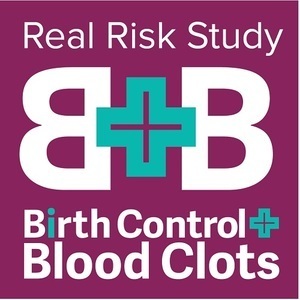When the subject of meditation comes up, I often hear, “I could never do that my mind is always racing.” Mine too! That’s why I meditate. To be honest though, many days it goes something like this:
Okay, good. I feel comfortable. This is going to be good. Just ten minutes. Wait, did I set the timer? Does it matter if you set the timer? Shouldn’t you meditate without a timer and just “know” that you are done? Maybe I’m not that good at meditating. Obviously, I’m not that good at meditating. I’m not good at a lot of things. Hey, wait, aren’t I supposed to stop with the negative self-talk? Yes, okay. I love myself. I am good at many things. Has it been ten minutes? I’m totally going to have a sandwich after this…
Saying you can’t meditate because your mind is too busy is like saying you can’t work out because you’re not strong enough. That’s exactly why you should work out. Quieting the mind is a practice. You aren’t going to get better at it if you don’t try. “Okay,” you may say at this point, “but why do I need to quiet the mind?” Well, I’m glad you asked. Let’s look at the science.
The Science of Meditation
What does it do?
When it comes to the brain, bigger is better and meditation is fertilizer. It has been shown to increase the volume of gray matter in the left hippocampus. What does that mean? It means an increase in “learning and memory processes, emotion regulation, self-referential processing, and perspective taking.”
The growth doesn’t stop there. Another study found that “meditators showed significantly larger volumes of the right hippocampus… larger volumes in these regions might account for meditators’ singular abilities and habits to cultivate positive emotions, retain emotional stability, and engage in mindful behavior.”
It also makes your brain thicker in the prefrontal cortex and right anterior insula. These regions are important for sensory, cognitive, and emotional processing. In addition, the research indicates that meditation may help slow age-related decline in these areas.
Meditation doesn’t just make your brain bigger, it also makes your telomeres longer. What the heck are telomeres? Telomeres are the caps at the end of each strand of DNA that protect our chromosomes, like the plastic tips at the end of shoelaces. “Shorter telomeres are associated with accelerated aging and related diseases… long-term meditators have a significantly younger biological age.” So maybe next time you’re fretting over getting older instead of reaching for the wrinkle cream, sit down and don’t think about it.
How does it work?
“Meditation enables us to move from higher frequency brain waves to lower frequency, which activates different centers in the brain. Slower wavelengths = more time between thoughts = more opportunity to skillfully choose which thoughts you invest in and what actions you take.”
What are the benefits?
The benefits of meditation are many and varied. An article from Dr. Hari Sharma compiles many of the highlights in the following paragraph:
“Research has confirmed a myriad of health benefits associated with the practice of meditation. These include stress reduction, decreased anxiety, decreased depression, reduction in pain (both physical and psychological), improved memory, and increased efficiency. Physiological benefits include reduced blood pressure, heart rate, lactate, cortisol, and epinephrine; decreased metabolism, breathing pattern, oxygen utilization, and carbon dioxide elimination; and increased melatonin, dehydroepiandrosterone sulfate (DHEA-S), skin resistance, and relative blood flow to the brain.”
Reductions in stress, anxiety, depression, pain, and blood pressure—what else do you need to know? How about that meditation can also help with insomnia and appears to be effective for treating post-traumatic stress disorder (PTSD).
How to Meditate
If they could bottle and sell the benefits of meditation, you’d probably pay top dollar for it. Especially given the lack of side effects. Yet like diet and exercise, knowing something will make us healthier doesn’t always get us do it.
Some people think the only way to meditate is to sit in lotus position on a yoga mat with a stick- straight spine. Not true! You also don’t have to meditate for long periods of time. There are many different meditation techniques and you really can’t do it wrong. When does anyone ever say that to you about anything? I’ll say it again. You really can’t do it wrong. I often meditate for ten minutes at a time while lying in bed just after I wake up. (Incidentally, a snooze button makes a great timer.) Or, I’ll meditate when I go to bed. Sometimes I just end up falling asleep. Guess what? It doesn’t matter!
You can also meditate while eating, while walking, while dancing, or even just gazing. Perhaps the simplest and easiest way is just to focus on your breath. As explained in the 2 minute video below, Tibetan Buddhist Master Yongey Mingyur Ripoche offers a simple technique for meditating that you can use anywhere. I know it’s helped my “monkey mind.”
Do you have any experience with meditation? What has or hasn’t worked for you?
We Need Your Help
More people than ever are reading Hormones Matter, a testament to the need for independent voices in health and medicine. We are not funded and accept limited advertising. Unlike many health sites, we don’t force you to purchase a subscription. We believe health information should be open to all. If you read Hormones Matter, like it, please help support it. Contribute now.
Yes, I would like to support Hormones Matter.
Image by 3503898 from Pixabay.















